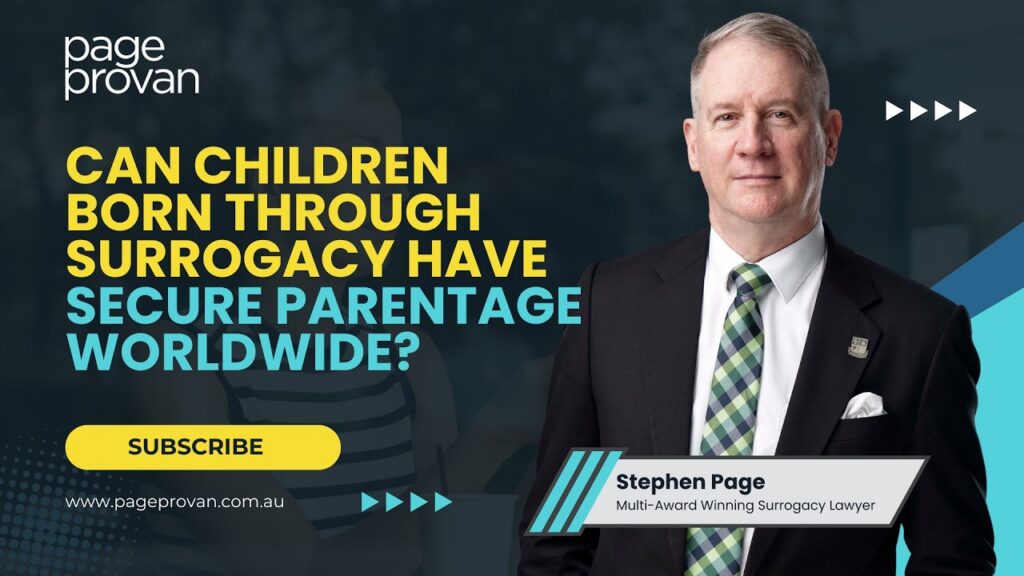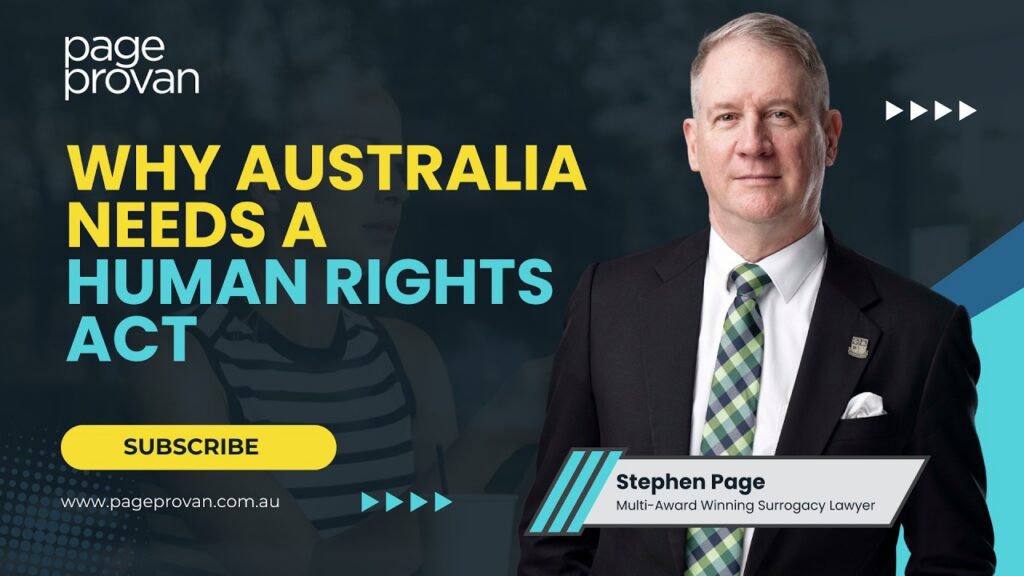“Those who want children, truly want children will risk almost anything to have them”
We discussed it thoughtfully, if briefly, and made a careful decision. We had considered all other options open to us also. Adoption was closed to us largely because of our age. If commercial surrogacy had been available in Australia much earlier, we certainly would have taken advantage of it. But this idea of creating a family wasn’t a decision we took lightly, thoughtlessly or without consensus as is possible (if seldom the case) amongst fertile couples. As a bonded pair we decided we had what it took to create a safe, happy home for a child or children.
My partner and I were elated when we discovered our surrogate in India was pregnant. We had done as much homework as was possible from a distance, into the moral, ethical and health standards of our clinic and thought we had made a wonderful decision, their primary concern was for their surrogate, then the fetus/embryo/infant and the client came a dead last. We were understanding if not exactly happy with this. As it turned out the only ethical problem we had was with their lack of care on how much they charged their clients as costs were insanely convoluted and difficult to track and our original quote was well below what we eventually paid. We suffered the additional expense of travelling to India, waiting the month required to run the administrative gauntlet and costs associated with that, whilst paying to for accommodation. This we did all this, whilst out of our own environment unlike many couples with new children, without the aid of public health purse, caring for the wonderful bundles of joy (we were blessed with twins) around the clock. We were exhausted but ever so happy to have these wonderful new babies.
So you can imagine how heartbroken we were to come home and through the natural process of gravitating towards other families who had their children via surrogacy, support and shared stories, discover that we were not considered legal parents and in fact may have inadvertently broken the law in order to create our family and complete our home. Now – If we want to become the legally defined carers of our own children (already genetically related to me and cared for by my stay at home partner for 5 years now), then we had to undergo a further legal expense. That said, we are now the proud parents of two bonnie and exuberant 5 year olds, looking forward to their first year in ‘big school’. 5 year olds we watched carefully hit every developmental milestone. Worried over if they were a little late. Celebrated when they achieved them early.
My partner ran after two girls for hours on their two wheeled bikes, teaching them to ride, only to be mildly disgruntled at my arrival home; post work, and 5 minutes attention before they ‘got it’. They credited me with teaching them to ride! It is all these moment crammed together making up our vast and layered lives that are the fundamental building blocks of a solid foundation for model citizens. We cannot know what their future will actually hold and what circumstances may change for them. But what we can determine is that given the expense and difficulty of bringing them into being, they are well and truly wanted and given their development, they have been truly cared for and loved by a couple whose strong foundation of a near 30 year relationship has been a cornerstone for them to start building their lives from. They are more likely to be good Australians than children who were born without thought, from a single night of drunken passion, for example, to negligent parents. Less likely to become welfare dependent or criminally inclined. This is a generalization I know. But it is also a generalization that cannot be denied in general, the statistic prove it.
Our children are happy. We are happy. And the love that filled our home has only increased exponentially. We are a family. We are also a gay couple, with children.
There are several things needed in Australia.
People will seek and eventually access surrogacy and some, have broken the law, knowing that to be the case, some have inadvertently done so. But what I know is that some people who feel they are at the end of the rope in terms of creating a family will be driven to extreme measures in order to fulfill that dream. It is not a selfish dream, it is the standard, the norm, the ‘taken for granted’ of every fertile couple in Australia. For some people adoption is not a legitimate choice, when the possibility of genetically related offspring hails, again considering the regularity with which neglectful and/or abusive ‘fertile’ people may produce offspring and be granted state funded medical care to do so. No license to be obtained, no administrative hoops to jump through, no extreme costs to overcome. In accessing an effectively banned and unregulated industry overseas or abroad, couples, surrogates and the unborn children ALL face risk. Some stories end happily, others end disasterously for one or more involved. Further money drains from the economy. There are simply not enough altruistic surrogates in Australia to fill the need and the legal issues are too disparate across states and unclear to the prospective participants.
1) The first thing that is needed in Australia is a regulated commercial surrogacy
legislation, on a National Level.
GLBTIQ couples aren’t necessarily infertile but are incapable without assistance of delivering a child on their own. There is a historic case of a single gay male, producing and co-parenting 7 children to various other lesbian couples. And if that existed there is definitely the possibility it
2) The second thing – Gay and lesbian community inclusion needs to be considered
in any model of commercial surrogacy legislation Australia considers.
Regulation of the commercial surrogacy industry ensures there are no grey areas, no misinformation and a solid yet transparent legal process for those needing to create their families under this method. This is safer for surrogates, safer for any potential offspring and safer for the intended parents. Unregulated, overseas surrogacy is not, but as I say, people wanting a family will risk it, despite or perhaps in spite of laws.
3) The third thing – Not only is legislation required to create a national surrogacy industry (and let’s face it, there are commercial benefits for Australia in having a commercial surrogacy program in Australia so the term industry applies) but regulation around the industry should be developed to keep all concerned informed, protected and aware of their rights and responsibilities.
In short, after having been through the process of surrogacy overseas and been lucky with our outcome, then bonding with other parents whose journey was the same but perhaps whose destination wasn’t. I realize that what is needed in Australia is a commercial surrogacy program to keep Australians; ALL Australians (including the potential ones) safe and under the protective wing of their government. It is important that this commission recognize that those who want children, truly want children will risk almost anything to have them and it isn’t at all fair that, their desire to fulfill the dream all others find so painless, should not only be difficult for them but also possibly encumber the lives of their children, through possibly creating financial hardship and legal hardship that others do not face.












